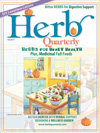The Reiki Digest for October 25, 2006: The Reiki Gokai: Lost, or gained, in translation?
Just for today...
For today only...
Namely today...
One day only!
Which of those phrases is NOT a translation of one of the Reiki gokai, also known as the Reiki principles, the Reiki precepts, the Reiki admonitions, or the Reiki ideals?
You'll find the answer at the end of this edition of The Reiki Digest.
If all the world's Reiki practitioners were fluent in Japanese, we'd probably still have many different interpretations of what the gokai really mean, and how we should implement them in our lives and Reiki practice.
The various translations of the gokai we've encountered, so far, are so different that there isn't even any clear agreement over how many principles/precepts/admonitions there are. Five? Six? Seven?
Because most Reiki practitioners study with only one of the many different Reiki lineages, and tend not to jump from teacher to teacher, lineage to lineage, most of us have just one version of the gokai, the one we learned in Reiki 1. But those who switch teachers in midstream, or go for multiple certifications in more than one lineage, learn more than one version.
For example, here are the Reiki Principles as I learned them in Reiki 1:
A mystical path to creating happiness.
A spiritual remedy for all afflications.
Just for today don't anger, just for today don't worry.
Please appreciate everything and show gratitude.
Strive to embody the teachings in your actions and be kind to people.
Morning and evening please place your hands together in prayer position.
Center your heart, mind and voice.
Well being for the spirit and body. Usui Reiki Treatment.
Founder, Mikao Usui
And here are the Five Precepts as I learned them in studying a different Reiki lineage:
For today only:
Do not anger
Do not worry
Be humble
Be honest in your work
Be compassionate to yourself and others
(You can also listen to the gokai in Japanese on that same site.)
Here are some other versions:
Don't get angry today.
Don't worry today.
Be grateful today.
Work hard today (meditative practice).
Be kind to others today.
Just for today, do not worry.
Just for today, do not anger.
Honor your parents, teachers, and elders.
Earn your living honestly.
Show gratitude to everything.
The secret art of inviting happiness
The miraculous medicine of all diseases
Just for today, do not anger
Do not worry and be filled with gratitude
Devote yourself to your work. Be kind to people.
Every morning and evening, join your hands in prayer.
Pray these words to your heart
and chant these words with your mouth
Usui Reiki Treatment for the improvement of body and mind
The founder , Usui Mikao
Whatever the translation, in every Reiki style and lineage I've encountered so far, the gokai are considered an important part of Reiki practice.
In my daily Reiki meditations, and even in everyday life, I enjoy pondering the gokai. Keeping them in mind throughout the day doesn't take up a lot of mental space, and I find it helps me focus on the things that really matter, thereby wasting less energy on the things that don't. I usually begin my day with a little Reiki, before I even get out of bed, and focusing on the gokai right then and there helps me plan my priorities for the day. I don't mind the many different versions -- instead, I find them fascinating.
What do you think? And how do you use the gokai in your life and Reiki practice? Tell us by adding a comment to this post on The Reiki Digest web site, or reply to this e-mail if you're a subscriber reading this in your inbox. I'd love to make this post, with comments, the most comprehensive collection of Reiki gokaitranslations anywhere.
I'd especially like to find translations directly from Japanese into languages other than English.
And maybe someday I'll learn more than a few phrases in Japanese myself.
That was the gokai roundup, now for this week's Reiki Roundup.
We begin in Minneapolis, Minnesota, where Reiki helps a young child with a form of autism, and helps his parents as well.
In Austin, Texas, Reiki Practitioner Naomi Thompson comes across very well in a newspaper article even though it's not an exceptionally good article.
Final stop, Rockford, Illinois, for "Clinical Reiki -- that is, Reiki for health-care professionals.
On to the Celeb-Reiki report: This week we venture into the sports world, where cyclist Hayden Roulston of New Zealand, who had retired after being diagnosed with a life-threatening heart condition, is now racing again. Roulston has made it clear that he believes Reiki has been a big help in dealing with his condition. Editor's note: While Reiki can be helpful for any condition, it is not a substitute for medical care.
From sports, we move to the world of theater, where we meet this week's other Celeb-Reiki: Toronto-based set and costume designer Dany Lyne, who uses Reiki in her work. She made headlines for winning Canada's biggest theatrical award, the $100,000 Siminovitch Prize.
This week's Reiki Show podcast from the International House of Reiki features British Reiki practitioner Jan Robinson about her work with those traumatized by war and disaster. Robinson is the founder of the Healing Hands Network.
Speaking of the International House of Reiki, I'll be in Chicago this weekend for their Shinpiden course at The Reiki Council. Last I heard, there was still one spot left in the class, so maybe I'll see you there.
Answer: "One day only!" is a phrase commonly found in advertising, but not a translation of the Reiki gokai.































